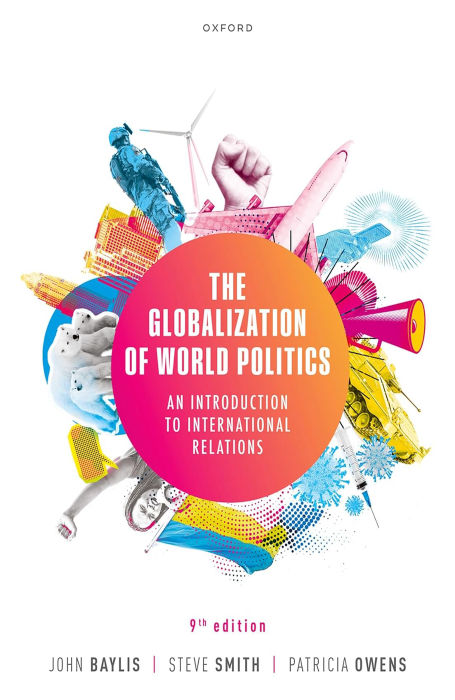Books
John Baylis, Steve Smith, Patricia Owens
The Globalization of World Politics
An Introduction to International Relations
The Globalization of World Politics by John Baylis, Steve Smith, and Patricia Owens stands as the definitive introduction to international relations, blending clarity, breadth, and up-to-date analysis. This bestselling textbook brings together leading scholars to unravel the complex theories and urgent issues shaping today’s interconnected world. With its accessible style and global perspective, it remains the go-to resource for students and newcomers eager to understand the forces driving world politics. Each edition reaffirms its reputation as the essential starting point for exploring the dynamics of global affairs.
Now in its ninth edition, The Globalization of World Politics offers the most comprehensive and current coverage of international relations theory and practice available. The book is structured to guide readers from foundational concepts to advanced debates, beginning with the historical evolution of the international system and moving through the major theoretical schools—realism, liberalism, Marxism, constructivism, postcolonialism, feminism, and more. It then examines the structures and processes that define contemporary world politics, including global political economy, international security, war, gender, and race. The final sections address pressing global challenges such as poverty, human rights, refugees, and the environmental crisis, ensuring that students engage with both enduring and emerging issues.
Each chapter is authored by a subject expert and concludes with summaries, glossaries, and annotated bibliographies, making complex ideas accessible and providing pathways for deeper exploration. The ninth edition introduces new content on global health—including the politics of COVID-19—alongside expanded discussions of non-Western perspectives on realism and the evolving nature of global order. Interactive features and online resources further enhance learning, allowing students to apply theories to real-world events and test their understanding through activities and case studies.
Praised for its balance, fairness, and pedagogical support, The Globalization of World Politics is ideal for both classroom use and independent study. While its breadth sometimes limits the depth of individual topics, the book excels at presenting a wide array of perspectives, encouraging critical thinking and further research. Its commitment to global inclusivity and regularly updated content ensures ongoing relevance in a rapidly changing world. For anyone seeking a solid foundation in international relations, this textbook remains unrivaled in scope and accessibility.

